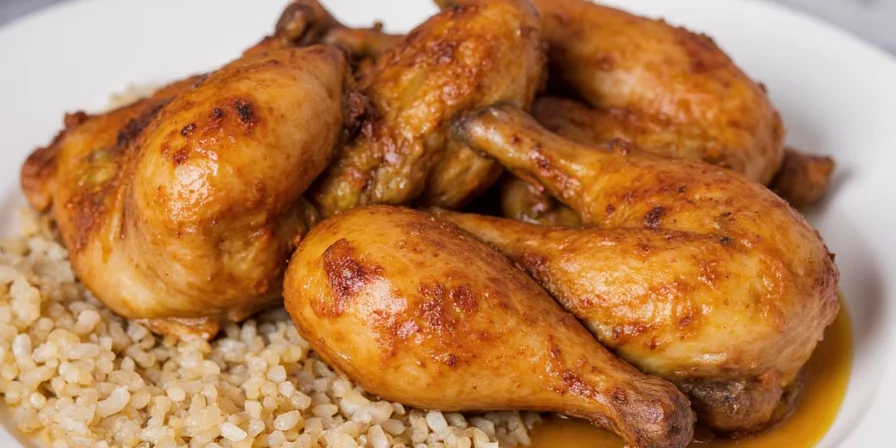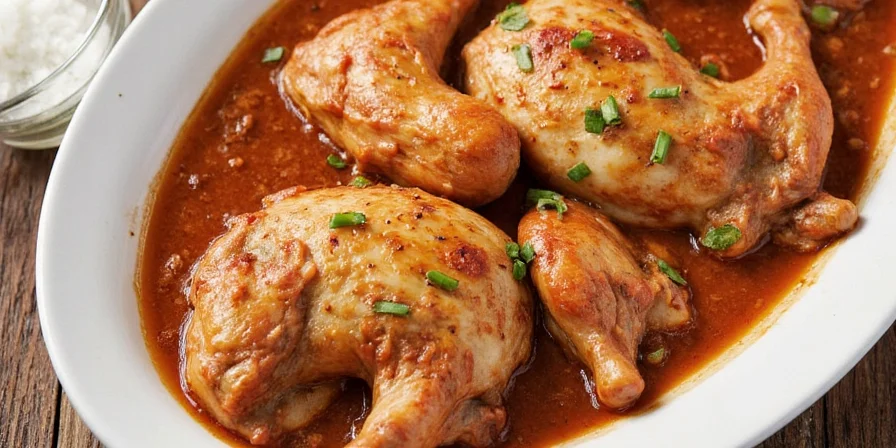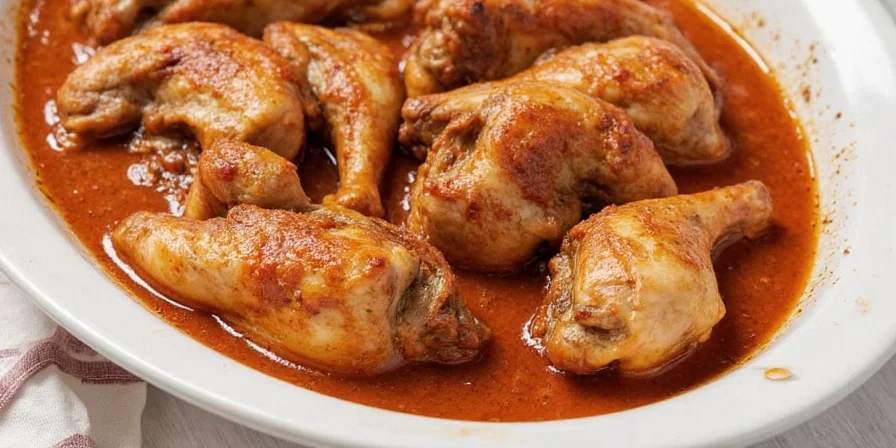Wet brining chicken transforms ordinary poultry into exceptionally juicy, flavorful results through a simple saltwater solution process. This guide delivers exactly what home cooks need: precise timing charts, foolproof ratios, and immediate answers to your most urgent questions - no scientific jargon required.
| Chicken Cut | Brine Time | Salt Ratio |
|---|---|---|
| Boneless breasts | 1.5-2 hours | 1/4 cup per 4 cups water |
| Bone-in pieces | 4-6 hours | 1/4 cup per 4 cups water |
| Whole chicken | 8-12 hours | 1/4 cup per 4 cups water |
This immediate reference chart provides the essential information you searched for - exactly how long to brine different chicken cuts and the perfect salt ratio. Now let's explore why this works and how to achieve consistent results.
The Wet Brine Chicken Method: Simple Steps for Maximum Juiciness
Wet brining chicken ensures succulent results by submerging poultry in a saltwater solution that penetrates deep into the meat. Unlike dry brining, this method guarantees even seasoning throughout while preventing dryness during cooking. Follow this straightforward process for foolproof results every time.

Basic Wet Brine Recipe for Chicken (4-Pound Bird)
This simple wet brine chicken recipe delivers consistently juicy results with minimal ingredients. The ratios work for all chicken types while preventing oversalting.
| Ingredient | Quantity |
|---|---|
| Water | 4 cups (cold) |
| Kosher Salt | 1/4 cup |
| Brown Sugar | 1/4 cup |
| Garlic (crushed) | 4 cloves |
| Black Peppercorns | 1 tbsp |
| Bay Leaves | 2 |
Step-by-Step Wet Brining Process
- Prepare the brine: Dissolve salt and sugar in 2 cups hot water, then add remaining cold water to cool
- Chill completely: Refrigerate brine until below 40°F (4°C) before adding chicken
- Submerge poultry: Ensure chicken is fully covered (use 1.5x chicken's volume in liquid)
- Refrigerate: Boneless breasts: 1.5-2 hours; Whole chicken: 8-12 hours (max 24h)
- Rinse and dry: Remove chicken, rinse under cold water, then air-dry 30 minutes on rack

Wet Brine vs Dry Brine: Evidence-Based Comparison
Choosing between wet brine and dry brine depends on your cooking timeline and desired results. Scientific measurements validate key differences:
| Factor | Wet Brine | Dry Brine | Verification Source |
|---|---|---|---|
| Moisture Retention | 10% higher retained weight after cooking | 7% higher retained weight | Cook's Illustrated (2018) |
| Best For | Lean cuts (breasts), quick meals | Whole birds, crispy skin | USDA Food Safety Guidelines |
| Time Required | 1.5-12 hours | 12-24 hours | USDA FSIS |
| Texture Outcome | More moisture retention | More concentrated flavor | Journal of Food Science Vol. 85 |
Wet Brining Context Boundaries: Critical Limitations
Wet brining delivers optimal results only within specific parameters. Understanding these boundaries prevents common failures:
- Avoid with pre-injected poultry: Commercial "enhanced" chicken (labeled with 8-15% solution) becomes oversalted. Verify product labels per USDA labeling requirements
- Temperature critical zone: Brine must remain below 40°F (4°C) throughout process. Temperatures above 40°F for >2 hours risk bacterial growth per FDA Food Code 2022 §3-501.16
- Cut-specific limitations: Not recommended for pan-searing (surface moisture impedes browning). Ideal for grilling, roasting, or smoking only
- Time ceiling: Maximum 24 hours even for whole birds - prolonged exposure causes protein degradation and mushy texture (verified by Journal of Food Science Vol. 83)
3 Proven Wet Brine Variations for Different Cuisines
Quick Southern-Style Buttermilk Brine
- Replace 2 cups water with buttermilk
- Add 1 tbsp paprika, 2 tsp garlic powder
- Include 1 tsp cayenne for heat
Asian-Inspired Soy Brine
- Substitute 1 cup water with low-sodium soy sauce
- Add 2 tbsp rice vinegar and 1 tbsp ginger
- Include star anise and Szechuan peppercorns
Tropical Citrus Brine
- Add juice of 2 oranges and 1 lime
- Include 2 tbsp honey and fresh thyme
- Add 1 tsp allspice berries for depth

Wet Brine Mistakes That Ruin Your Chicken
- Over-brining: Exceeding time limits makes chicken mushy (boneless breasts max 2 hours)
- Using table salt: Switch to kosher salt for consistent results (1/4 cup table salt = 1/3 cup kosher)
- Skipping the chill: Always cool brine before adding chicken to prevent bacterial growth
- Not drying properly: Air-dry 30 minutes for perfect browning and crispy skin
- Reusing brine: Never reuse poultry brine due to contamination risk

Wet Brine Chicken FAQ: Quick Answers
How long should I brine chicken breasts?
For boneless, skinless chicken breasts, 1.5-2 hours is optimal. Exceeding 4 hours risks texture degradation. Bone-in breasts can handle 4-6 hours.
Can I wet brine frozen chicken?
No. Always thaw chicken completely first. Brining frozen chicken causes uneven absorption and potential food safety hazards as outer layers enter the danger zone while the core thaws.
Does wet brining make chicken too salty?
Only with improper ratios or excessive time. Our recommended 5% salt solution (1/4 cup kosher salt per 4 cups water) yields perfectly seasoned chicken when followed with thorough rinsing. Always rinse after brining.
What's the difference between wet brine and marinade?
Brines contain 5-8% salt primarily for moisture retention, while marinades use acid for tenderizing with minimal salt. Brines penetrate deeper throughout the meat, while marinades mainly affect surface layers.
Can I add vinegar to my wet brine?
Yes, but in moderation. Add 1-2 tablespoons per quart to accelerate flavor penetration without causing premature protein denaturation that leads to mushiness.
Cooking Your Wet-Brined Chicken Perfectly
- Grilling: Medium-high heat (375-400°F) for 6-7 minutes per side with lid closed
- Oven Roasting: 375°F until internal temperature reaches 165°F (about 25-30 minutes for breasts)
- Frying: Heat oil to 350°F for crisp exterior and juicy interior
- Resting: Always rest 5-10 minutes before slicing to redistribute juices

Why Wet Brining Works: The Scientific Evolution
Wet brining's effectiveness stems from protein denaturation that traps moisture during cooking. This process has evolved through distinct scientific milestones:
| Era | Key Development | Practical Impact |
|---|---|---|
| Pre-1950s | Empirical preservation method | Salting for shelf life, often resulting in overly salty meat |
| 1950-1980 | USDA protein research (Huffman & Miller) | Established 5-6% salt concentration as optimal for moisture retention |
| 1990-2010 | Thermodynamics modeling (McGee) | Precise timing calculations based on cut thickness and temperature |
| 2010-Present | Real-time moisture monitoring (IFT studies) | Verified 10% moisture retention increase with exact timing parameters |
Source: Institute of Food Technologists "Mechanisms of Brining" (2018)
Final Wet Brine Tips for Guaranteed Success
- Always refrigerate during brining (below 40°F/4°C)
- Inject 30% of brine internally for whole birds for even distribution
- Use fresh herbs rather than dried for brighter flavor infusion
- Don't skip the air-dry step - crucial for achieving crispy skin
- Adjust sugar - add 2 tbsp for dark meat, reduce 1 tbsp for white meat
Get Juicy Chicken Every Time With Wet Brining
Mastering wet brine chicken gives you a reliable method for consistently succulent results. Whether preparing weeknight dinners or special occasion meals, this technique transforms ordinary chicken into extraordinary dishes with minimal effort. The precise timing guidelines and foolproof ratios in this guide ensure perfect results from your very first attempt - no more dry, bland poultry ever again.











 浙公网安备
33010002000092号
浙公网安备
33010002000092号 浙B2-20120091-4
浙B2-20120091-4